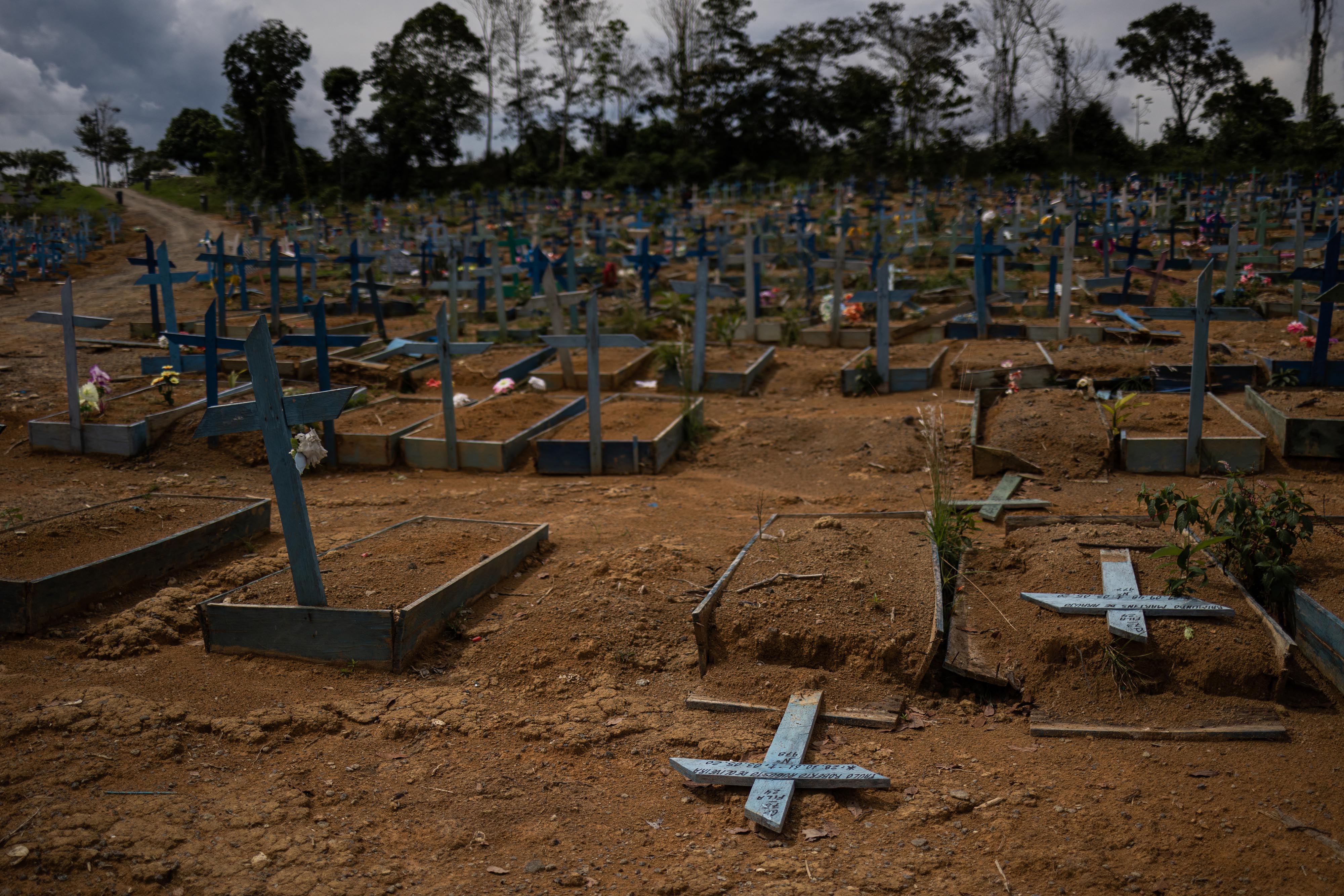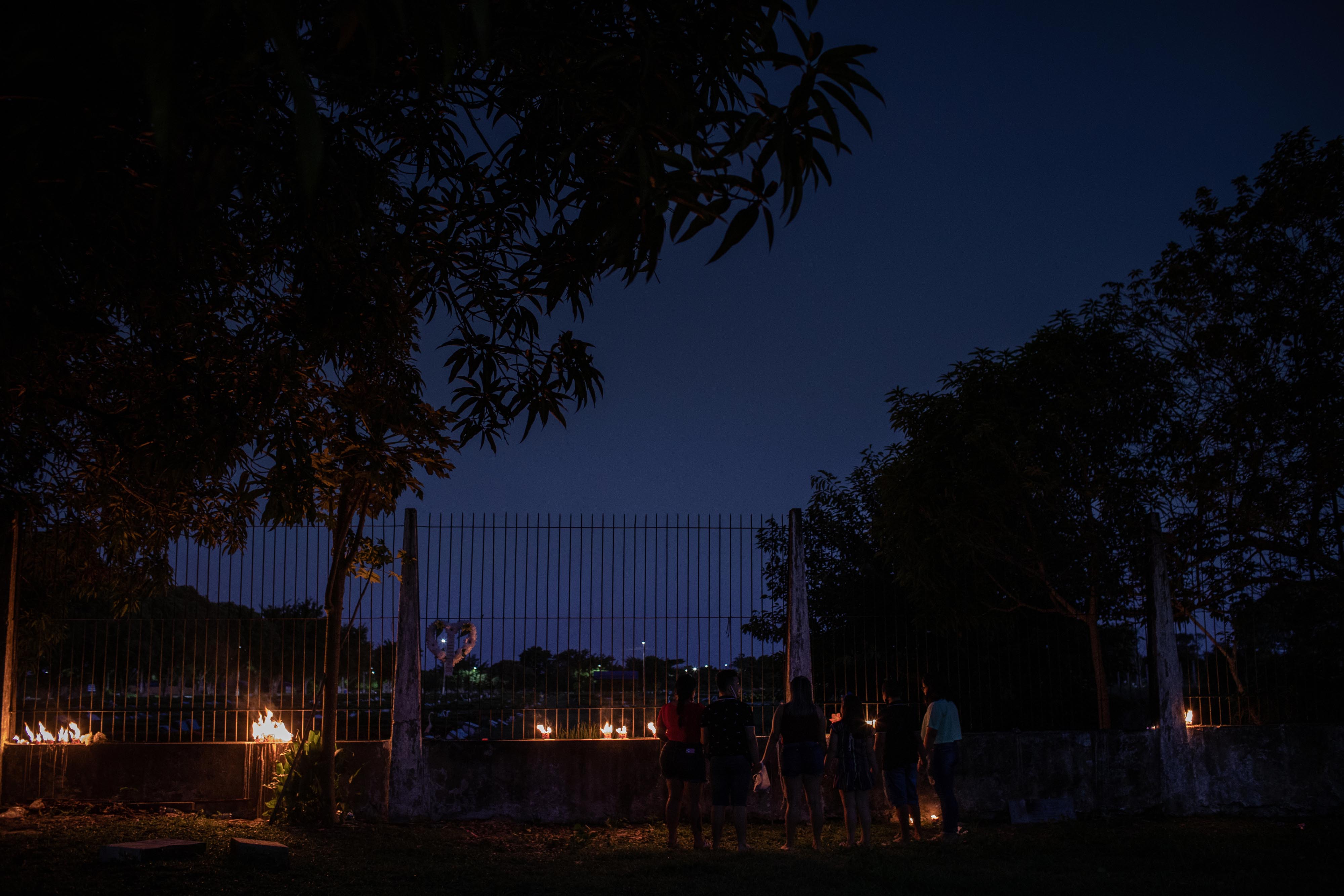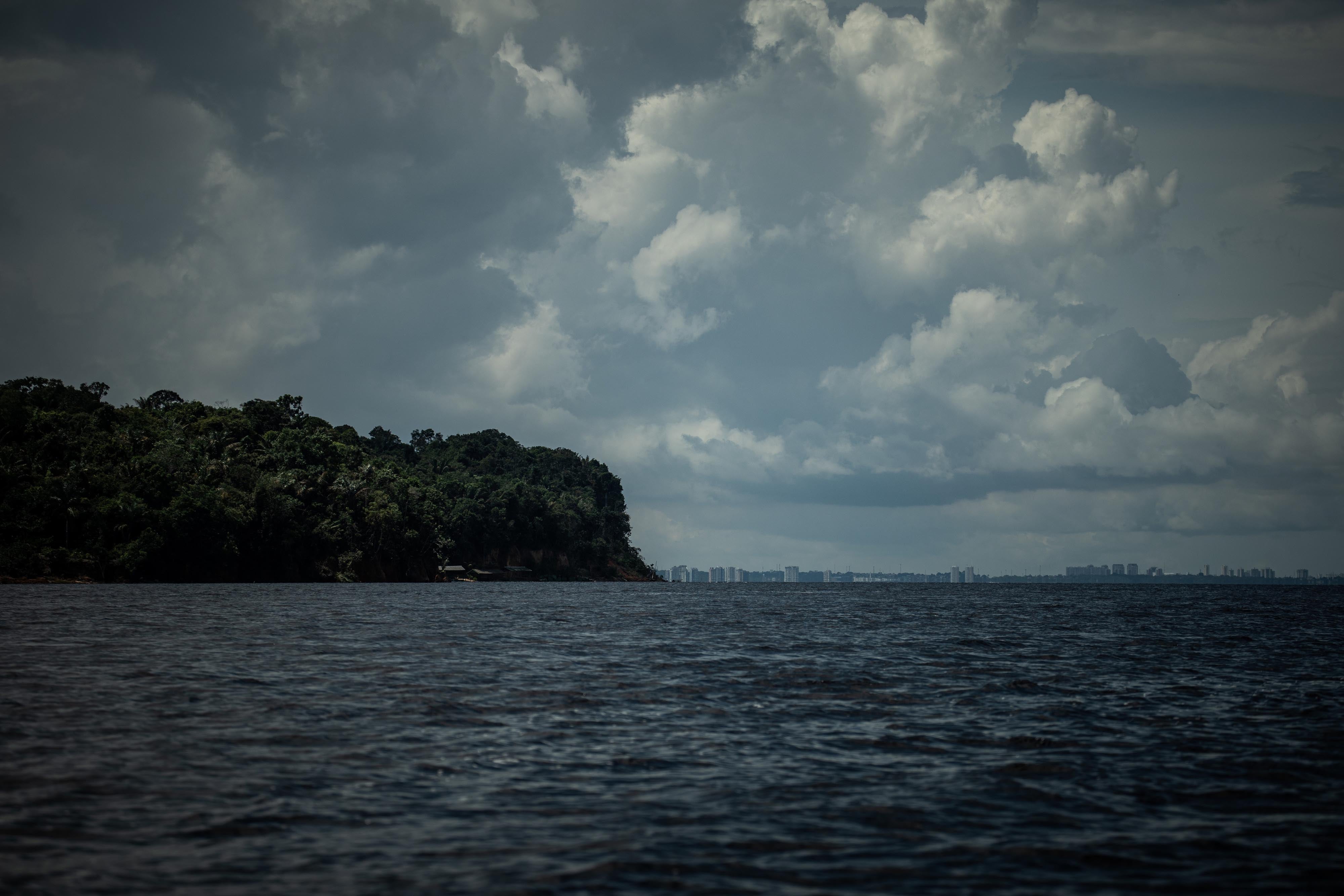As vaccinations send Covid-19 into retreat, Brazil finds new hope
Once among Brazil’s worst-affected cities, Manaus is at last emerging from the coronavirus crisis. Yet beneath the new-found optimism, trauma remains, writes Terrence McCoy

Your support helps us to tell the story
From reproductive rights to climate change to Big Tech, The Independent is on the ground when the story is developing. Whether it's investigating the financials of Elon Musk's pro-Trump PAC or producing our latest documentary, 'The A Word', which shines a light on the American women fighting for reproductive rights, we know how important it is to parse out the facts from the messaging.
At such a critical moment in US history, we need reporters on the ground. Your donation allows us to keep sending journalists to speak to both sides of the story.
The Independent is trusted by Americans across the entire political spectrum. And unlike many other quality news outlets, we choose not to lock Americans out of our reporting and analysis with paywalls. We believe quality journalism should be available to everyone, paid for by those who can afford it.
Your support makes all the difference.Aldei Silva steps out of the hospital, takes off his mask and surveys the courtyard. The scene is peaceful: no families are screaming for help, no ambulances are lining up, no patients are being turned away and left to die. There is none of the chaos that the intensive care nurse has come to associate with this city’s protracted struggle against the coronavirus.
Vendors are back, selling water. People are once again laughing at their phones. Silva feels a sense of relief. “Thank God,” he says. “It was total desperation here. By comparison, this is paradise.”
Better days seem finally to have arrived in Manaus, the isolated Amazonian city of 2 million that introduced the world to the destructive potential of the coronavirus in the developing world. After two devastating waves – one last year and another this year – the hospitals are now largely empty of Covid-19 patients. This month, for the first time since the pandemic reached the region, Amazonas state had a day when it did not register a single coronavirus death.
“We have weeks where there is practically no one showing up with symptoms of Covid,” says Uildéia Galvão, lead physician in the coronavirus ward at the 28th of August Hospital. “The vaccine has been fundamental.”
Throughout the pandemic, Brazil has looked to Manaus for clues for what was coming next. The city, which eschewed the containment measures that were successful elsewhere, was the country’s first to experience a widespread medical failure. After a period of recovery, it then gave rise to the variant known as Gamma, or P.1, which devastated the country and punctured hopes that Manaus had reached herd immunity. Researchers have described the city as a “sentinel”, allowing the scientific community to study an urban setting where the virus was allowed to spread largely unmitigated.
Many in Manaus now carry themselves with the air of shipwreck survivors – delirious to have survived, but changed forever by the experience
Now Brazil, which has buried more coronavirus victims than any country except the United States, is again glancing northward at Manaus. While the national vaccine campaign rolled out sluggishly in much of the country, Manaus raced ahead. The city, one of the first places in Brazil to begin coronavirus vaccinations, has immunised 75 per cent of its adults with at least one dose – far more than the national rate of 55 per cent. Even healthy adults in their early twenties are now getting the shot.
As hospitalisations and deaths here plunge, Brazilians in other parts of the country are beginning to express the hope that relief could soon arrive. The vaccine campaign has picked up considerable speed in recent weeks. A record 94 per cent of Brazilians say they want the shot. On Monday 12 July, the nation registered its fewest cases since January. Plans are under way to hold the country’s raucous New Year’s Eve celebrations in December and carnival next year.
For the first time in more than a year, scientists – who have issued dire warning after warning – are beginning to sound hopeful.
“Unpredictability is a mark of Covid-19,” says Renato Kfouri, head of the immunisations department at the Brazilian Society of Paediatrics. “But in this moment, the retreat of the pandemic nationally has gone through Manaus first. It could be something of a mirror for what you can expect to see in other parts of the country.”
Many in Manaus now carry themselves with the air of shipwreck survivors: delirious to have survived but changed forever by the experience. For more than a year, the city suffered a kind of claustrophobia – isolated by geography, overwhelmed by disease, 2 million people marooned in the middle of the Amazon. There was no escaping the disease and few options for those who got it.

More than 9,200 people died in the city. Many survivors lost loved ones. A collective pain lies just beneath the surface. Talk to almost anyone for a few minutes, and it rises to the surface.
“It’s this tattoo on me,” says Marcia Freitas, 44. “There’s no way to forget.”
As the hospital system failed last year, her grandmother, father-in-law and aunt fell ill. “There were so many people dying at the same time,” she says. Hospital beds were running out. She put her grandmother in the car and went in search of one. But by the time they arrived at a hospital, her grandmother was dead. Her father-in-law also died that day. Her aunt also succumbed.
Freitas, a government worker, sees others in the city trying to move on. But on some days, she still feels stuck, thinking about that day. Having lost so much to the coronavirus, she doesn’t know where to put all of that pain.
She sees the same struggle etched into the faces of those around her.
Her friend Carla Lima’s family made it through the first coronavirus wave in the city, but then came the P.1 variant. Within days, her mother, father and brother fell ill. Patients overwhelmed the city’s medical system and depleted oxygen supplies.
There was nowhere to take Lima’s loved ones and no oxygen to give them. She searched the city for oxygen but came up with nothing. It took three days of waiting through lines to find a single tube.
But it was no use. The virus soon took all three of her loved ones.
All that remain of the family are Lima and her sister.

“I wake up screaming all of the time,” she says. “I can’t sleep. I’m on antidepressants. There’s no way to forget something like this. It was chaos.”
In a cemetery on the outskirts of Manaus, a gravedigger walks among the graves. Ulisses Xavier is still wearing the full protective suit he has worn since the beginning of the pandemic. These days, he barely buries anyone taken by the coronavirus, but he is not yet ready to loosen his regimen.
Xavier rests a gloved hand on one of the thousands of crosses adorning the graves of coronavirus victims. They go on and on – it is like looking out into the sea.
The ground where he stands was once a soccer field where cemetery workers played. But when the second wave came and every available large patch of dirt in the cemetery was consumed, they sacrificed their pitch to make another graveyard.
Xavier looks at the clearing, thinking of days that he hopes will never return.
“It was like a war zone – a war against the virus, and we were losing,” he says. “But now, with the vaccine, we’re finally making our comeback.”
© The Washington Post
Join our commenting forum
Join thought-provoking conversations, follow other Independent readers and see their replies
Comments